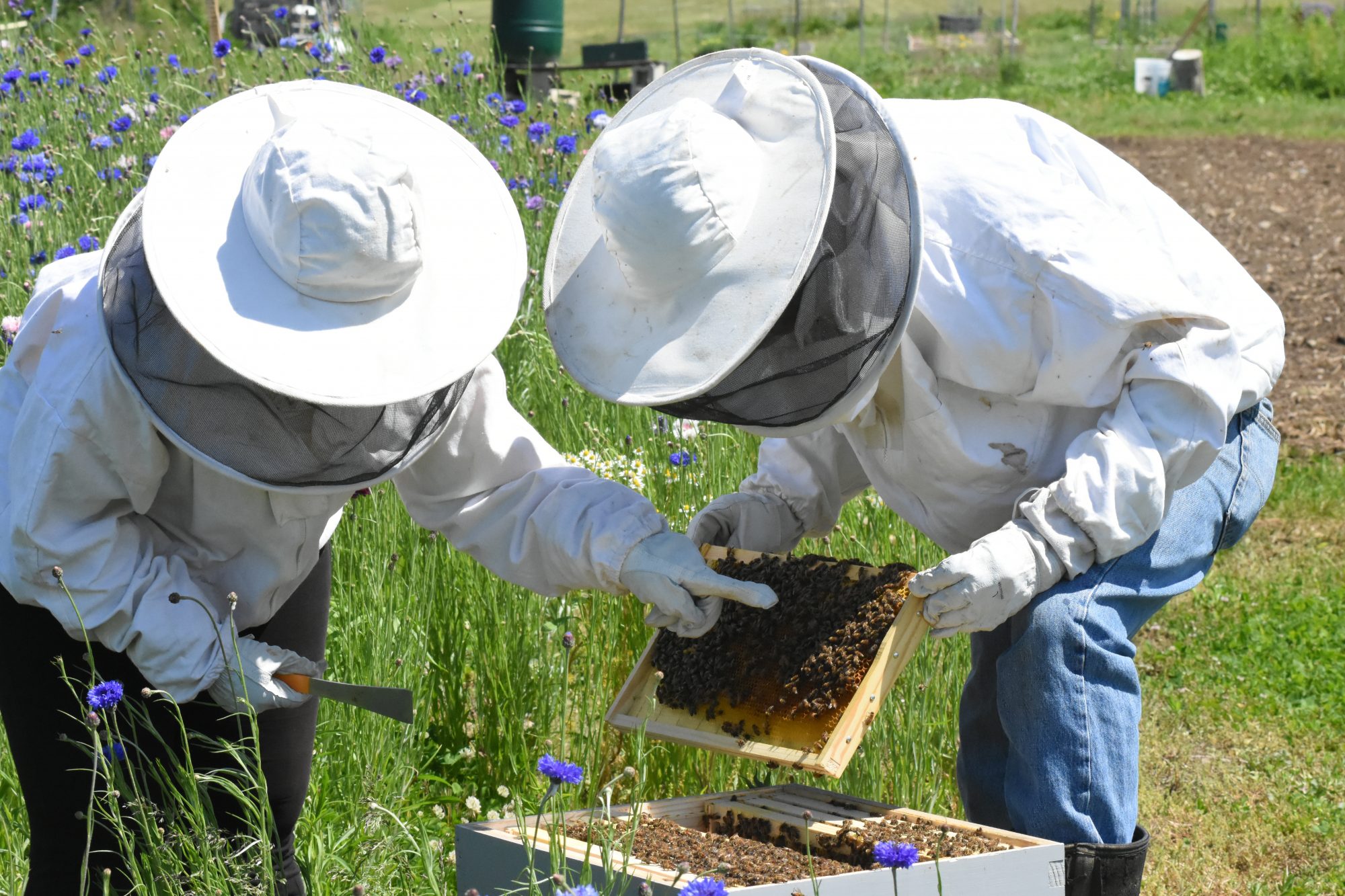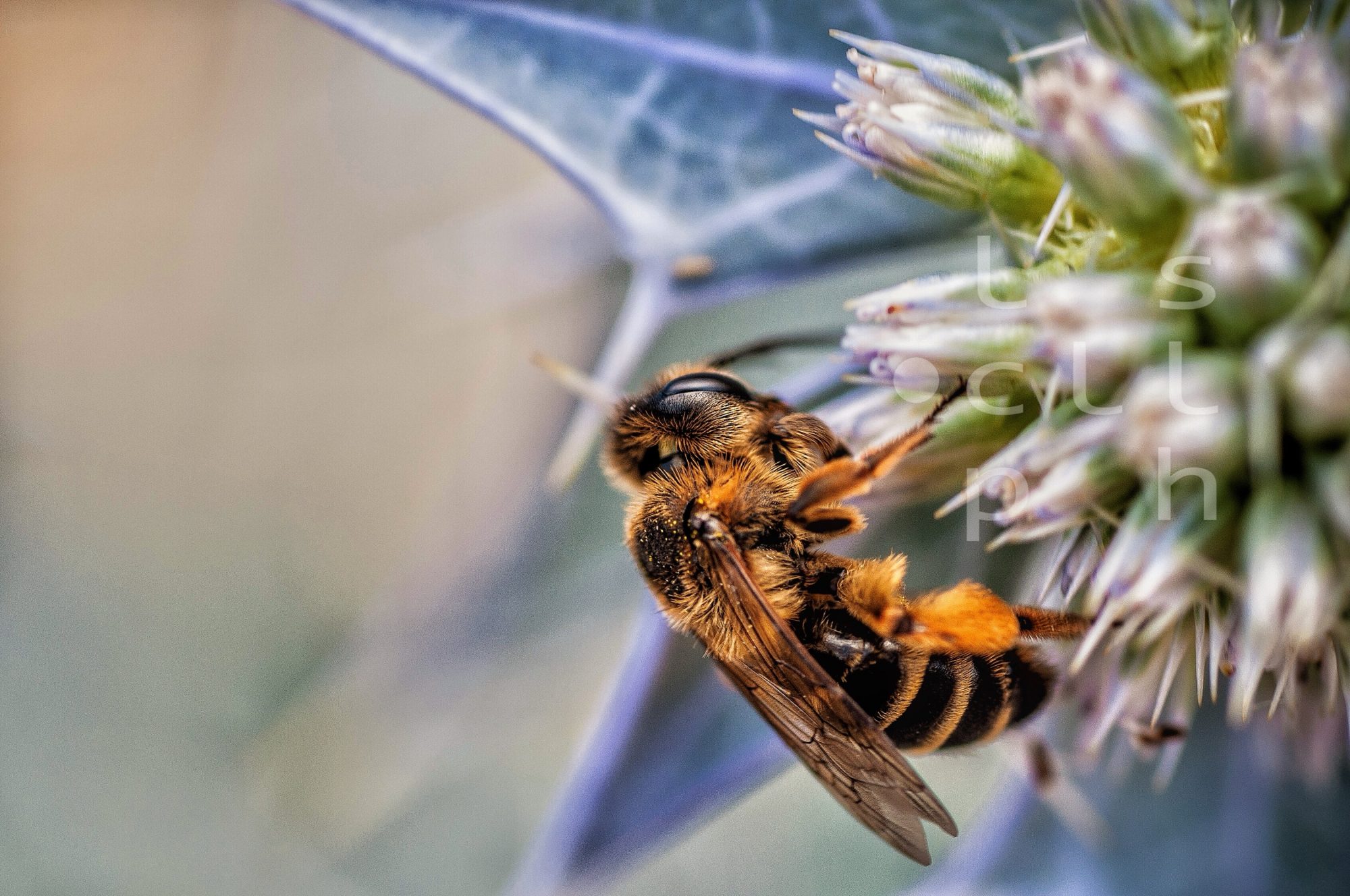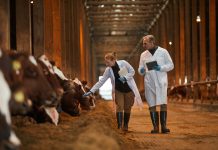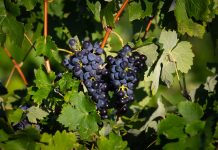Yields of crops visited by insect pollinators like bees produce a more stable food supply and help stabilise food prices
More than 200 experiments compared crop yields with and without insect pollination and revealed that there is 32% less variability in yields of plants visited by pollinators.
By supporting the conservation of bees, we are helping to stabilise the food supply and prevent further hikes in food prices.
Pollinators like bees are especially good at stabilising the production of important crops like oilseeds and fruit. Bees can have an impact on food prices by reducing uncertainty when it comes to growing crops.
Scientists at the University of Reading analysed years of data on the poorly understudied and understood effect of pollinators on crop yield stability.
The team found that there was 32% less variation in the yields of plants visited by bees and other pollinators than those grown in absence of pollinators.
The study, published in the journal Ecology Letters, suggests that pollinators could be vital in mitigating supply issues and market shocks capable of causing global price spikes.

Championing pollinators by supporting their needs
The publication marks the start of Bees’ Needs Week (18-24 July). Bees’ Needs Week is a UK Government-led initiative championing pollinators and their benefits. This year it is challenging people to take five simple actions to support pollinators.
A Superbloom attraction at the Tower of London, made up of 20 million wildflowers, will be on display to the public all summer long.
Dr Jake Bishop, a crop science researcher at the University of Reading, who led the study, said: “Our findings suggest that preserving pollinators provides a double benefit, reducing fluctuations in food supplies as well as boosting supplies in the first place.
“Stable and predictable production of nutritious food is a necessity for farmers and for global food security. We are seeing right now that instability or shocks across the food system can lead to dramatic increases in food price.
“The research has revealed another reason why pollinators are so important to our planet, and to so many families who are struggling to feed themselves with sufficient, safe and nutritious food.
Pollinators are particularly important in the production of fruit and vegetable crops
“Pollinators are particularly important in the production of fruit and vegetable crops. Around half of the experiments we analysed were testing the effect of real pollinator populations in real crop fields so our results illustrate the benefits that pollinators are currently providing.”
Could bees be the answer to crop stability?
It is well known that pollinators positively impact crop yield, but until this study – their effect on crop stability was poorly understood.
By combining the results of more than 200 previous experiments comparing the yield of crop plants with and without insect pollination, the University of Reading study focused on three globally important and representative crop species: faba bean, oilseed rape and apples.
Researchers tested how pollination affected the yield stability within individual plants and fields as well as across larger spaces. Insect pollination consistently made yields more similar between flowers on a plant, between individual plants, areas within fields, or between fields.
Pollination has a stabilising effect due to a ceiling effect – the yield increase resulting from insect pollination hits an upper limit due to limitations of other resources that support crop growth such as soil nutrients or access to water. This creates a raised and more stable baseline against which there is less fluctuation in yield.
Currently, food prices are sky rocketing. War in Ukraine means that Ukraine is less able to export products and as one of the world’s largest exporters of sunflower oil and wheat, this is having a devastating impact.
Pollinators may just be the solution to mitigating rising food prices and ensuring that the food supply is stable.











